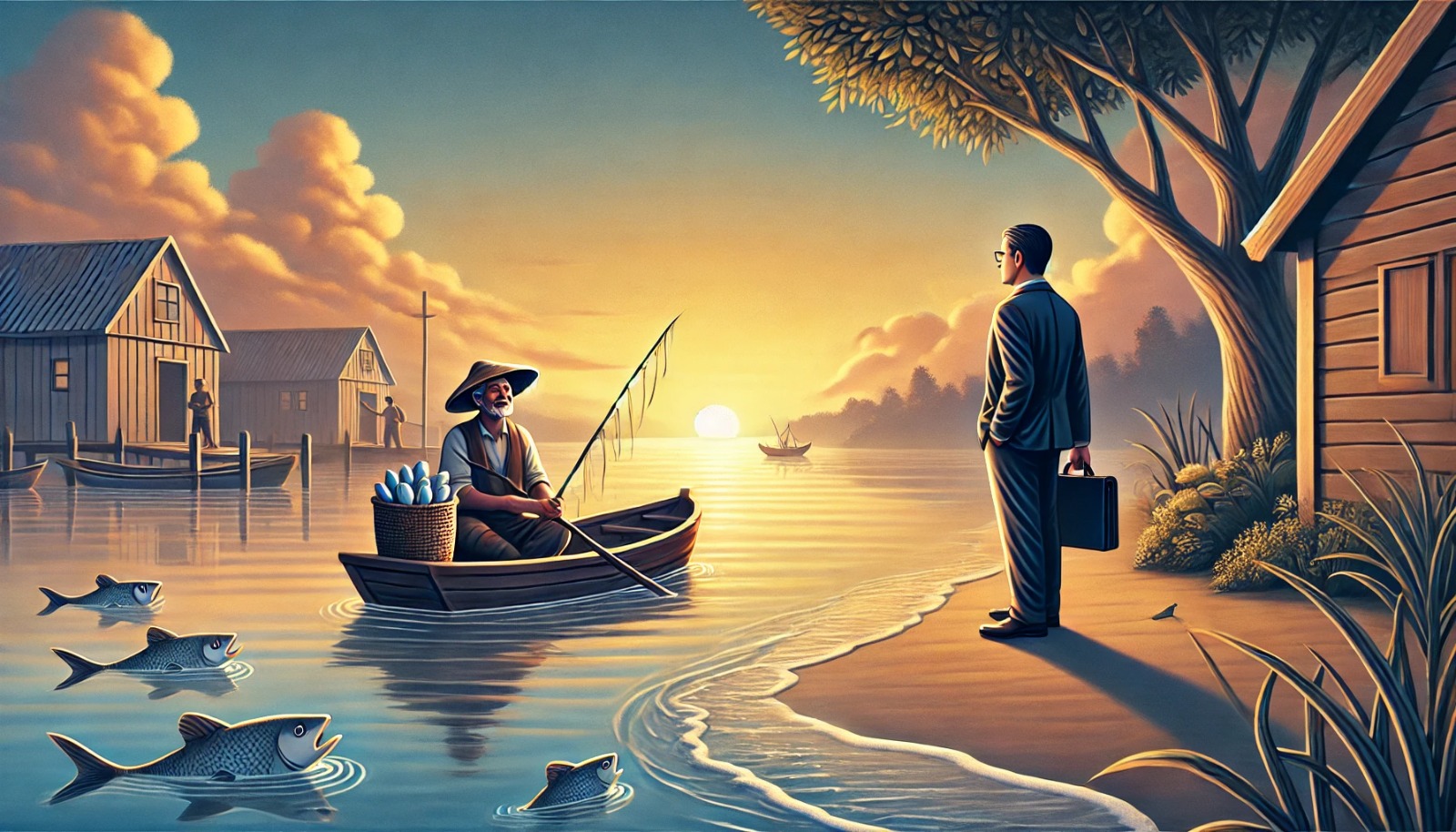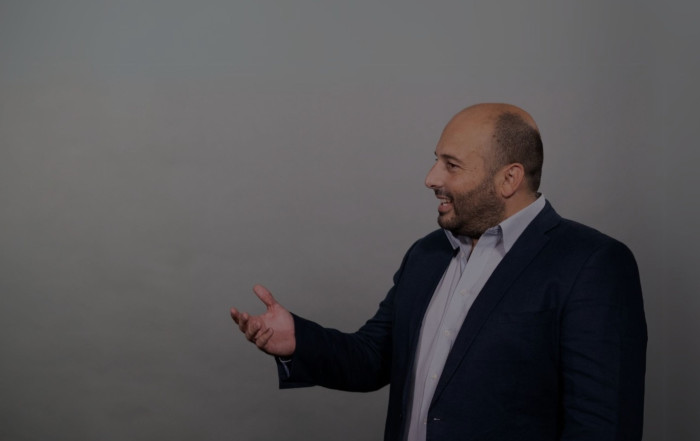Once upon a time, in a small, serene fishing village in Mexico, there lived a fisherman with a simple routine.
Each morning, he set out in his modest boat and sailed into the open sea. By midday, he returned with just enough fish to feed his family and sell a few to his neighbours. With his needs met, he spent his afternoons relaxing, enjoying meals with his family, and chatting with friends. In the evenings, he played guitar and watched the sunset, satisfied with his day’s work and content with life.
One day, a wealthy businessman from a bustling city visited the village. He watched the fisherman as he brought in his catch and noticed how relaxed and carefree he seemed. Curious, the businessman approached him and asked, “Why do you only catch a few fish each day? If you stayed out longer, you could catch more fish and earn more money.”
The fisherman listened politely and asked, “And what would I do with more money?”
The businessman, eager to share his perspective, replied, “With more money, you could buy a bigger boat and catch even more fish. With the profits, you could eventually buy a fleet of boats and hire others to fish for you. Soon, you could build a large fishing business. You could process and export fish to other countries.”
The fisherman thought about it and asked, “And after that?”
The businessman, smiling, continued, “Then you could expand your business further, open an office in the city, and manage it from there. Eventually, you could retire with a fortune and live peacefully without any worries.”
The fisherman paused for a moment, then asked, “And how long would all of this take?”
After thinking for a moment, the businessman replied, “Maybe 15 to 20 years.”
The fisherman smiled and asked, “What would I do after retiring?”
The businessman said, “Then you could do anything you want! You could move to a quiet village, spend time with your family, enjoy the sunsets, and fish whenever you please.”
The fisherman chuckled, looked out over the peaceful sea, and replied, “But I’m already living that life now.”
Lessons
The story of the fisherman and the businessman offers several profound lessons on contentment, fulfilment, and the meaning of true wealth. Here are some key takeaways:
- Contentment is the Key to Happiness: The fisherman’s life illustrates that happiness does not always come from accumulating wealth. It also doesn’t come from constantly striving for more. Instead, he finds joy in his daily routine, time with loved ones, and natural beauty. This shows that contentment and gratitude for what we already have can often bring greater peace and satisfaction than chasing external achievements.
- The Value of Work-Life Balance: The fisherman balances work and leisure to suit his needs and values. He meets his daily requirements and then spends time relaxing and doing activities that bring him joy. This approach highlights the importance of work-life balance. Overworking to chase financial success may lead us to miss out on the moments that truly matter.
- Knowing When You Have “Enough”: One of the most powerful lessons in the story is the concept of “enough.” The fisherman knows when he has enough to meet his needs and is content with that. In contrast, the businessman sees only the potential for more and overlooks how this might lead to endless chasing. Understanding what “enough” means can free us from the pressure always to acquire more.
- The Importance of Presence and Enjoying the Moment: The fisherman’s life revolves around simplicity and presence, which allow him to enjoy the moment. He isn’t concerned with building a future empire but focuses on the present and savours each day. This reminds us that happiness often lies in living in the moment, not waiting for future achievements to bring satisfaction.
- True Wealth is Measured in Experiences, Not Possessions: While the business person equates wealth with financial success, the fisherman measures it through experiences. His time with family, siestas, sunsets, and peaceful living reflect true wealth. This suggests that fulfilment comes from meaningful experiences and relationships, not material possessions or money.
- Perspective Shapes Our Goals and Happiness: The fisherman values simplicity and sufficiency, while the business person focuses on ambition and accumulation. This difference in perspective affects how each defines success. The story reminds us that shifting our perspective to embrace simplicity and value the present can lead to a more fulfilling life.
- The Paradox of Endless Striving: The businessman’s approach reflects a common paradox: working hard now to enjoy life later but possibly never reaching satisfaction. The fisherman challenges this by already living the life he wants. This lesson encourages us to question the idea that happiness must come later. Instead, it invites us to incorporate joy into our present lives.
In essence, the story of the fisherman and the businessman encourages us to reflect on our values, reconsider our goals, and find joy in the present moment. True contentment and happiness are often found not in endless pursuits but in appreciating what we already have.
Share this Blog
Recent Thoughts
Rumours, Noise and Real Growth: Learning to Keep My Eyes on the Road
“Matthew is a closeted gay.”“Matthew jumps from woman to woman.”“He’s money-minded.”“I’ve heard he sees women for free if they ‘offer favours’.”“I’ve heard he’s
Ikigai vs. Workaholism: Why I’ve Given Up Perfectionism and Workaholic Tendencies
1) Facing Challenges Head-On Throughout my career, I've always faced problems head-on. Confronting challenges directly is part of who I am. However, there




